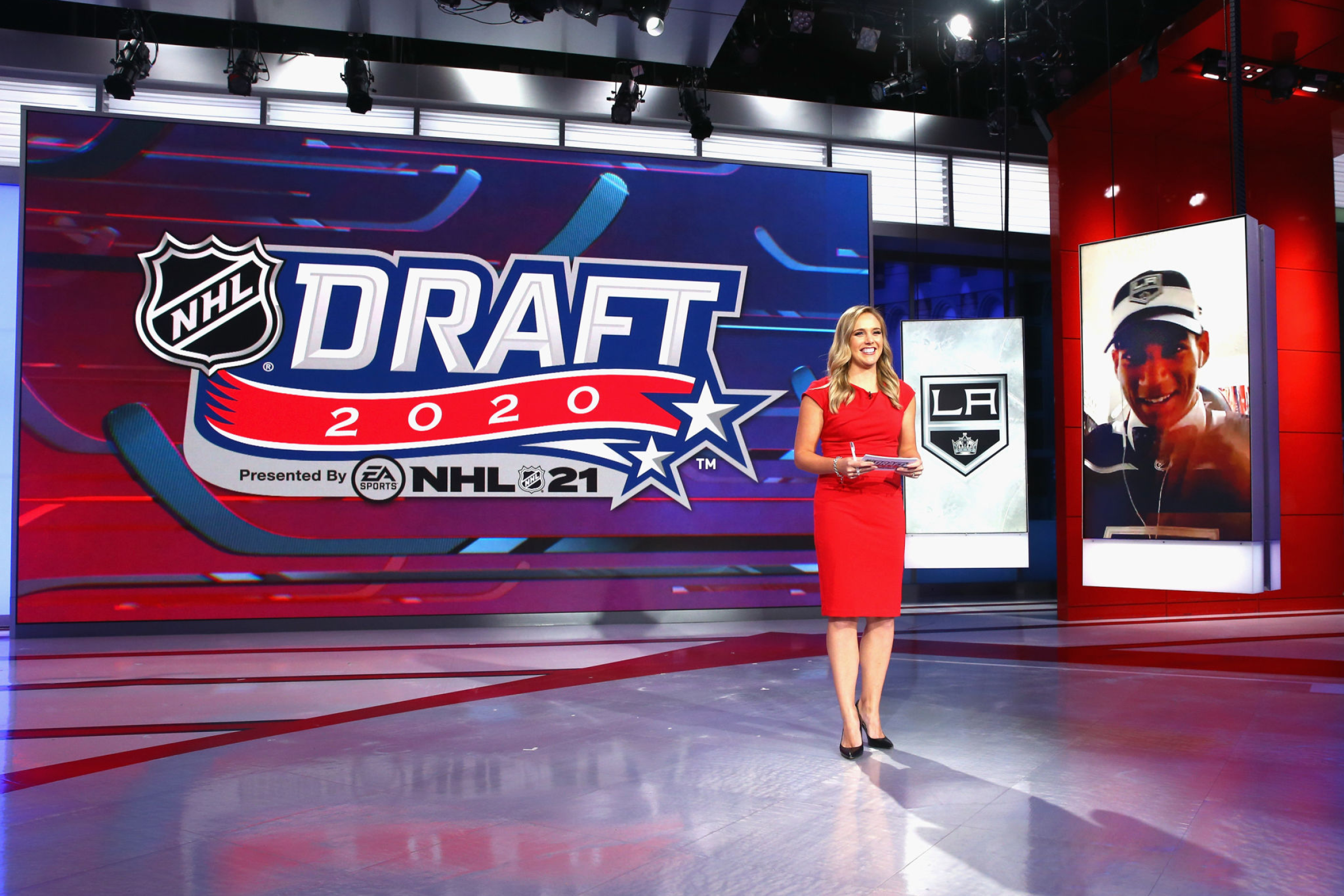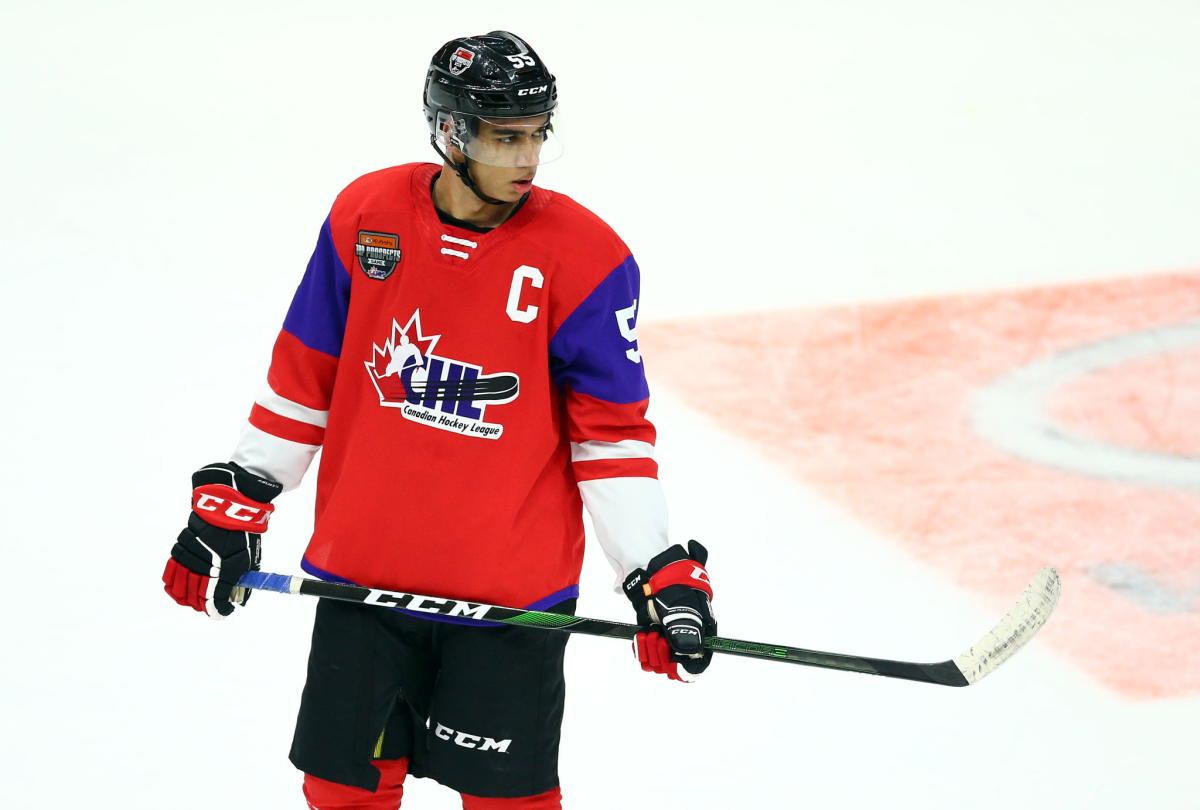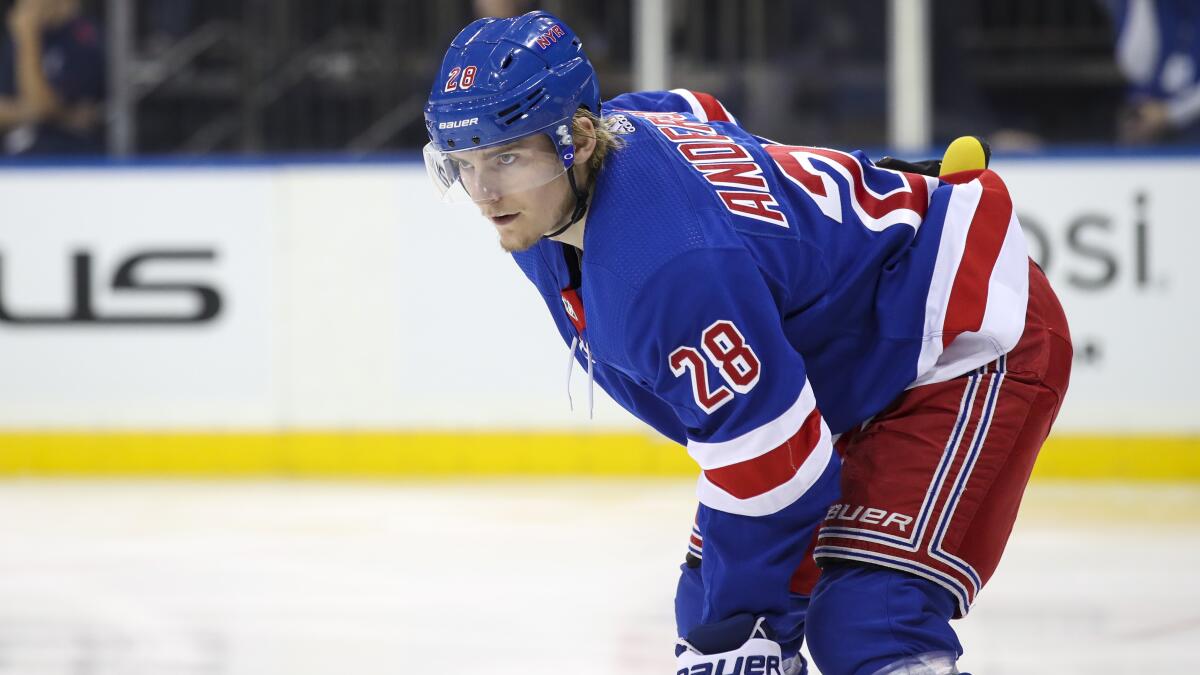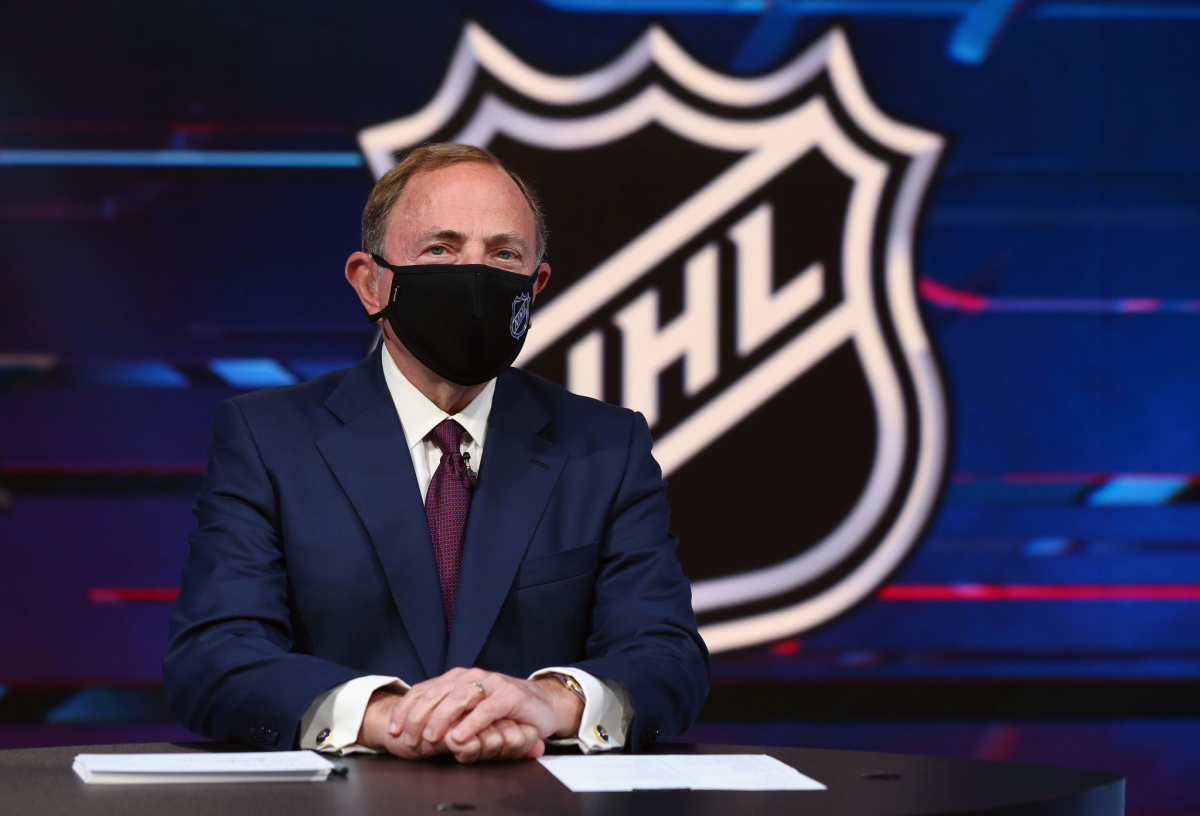Go beyond the scoreboard
Get the latest on L.A.'s teams in the daily Sports Report newsletter.
You may occasionally receive promotional content from the Los Angeles Times.

Mark Yannetti said it usually takes about five years to truly evaluate the strength of an NHL draft class.
But after the final pick of this year’s event Wednesday, the Kings’ director of amateur scouting waited all of about 15 minutes to make an early assessment of his team’s 10-player haul.
“I’m not going to lie,” Yannetti said over a video call. “The results of this draft I think are exceptional.”
After making nine picks and adding another young player, Lias Andersson, through a trade, here are three reasons the Kings’ optimism might prove to be right.

For all the external anticipation leading up to the Kings’ first pick (and second overall), the selection Tuesday of Quinton Byfield had a certain anticlimactic feeling inside the team’s war room.
The Kings had known for weeks that Byfield would be their choice. While his skill set was on par with other prospects at the top of their board, the big-bodied center stood out for one simple reason.
“Byfield fit every box that [coach] Todd [McLellan] and [general manager] Rob [Blake] have established for the team to learn to win,” Yannetti said.
The Kings selected seven centers in Blake’s first three drafts as general manager. But none possess Byfield’s combination of size (6 feet 5 and 222 pounds) and long-term potential to physically dominate at the NHL level.
Quinton Byfield, who became the NHL’s highest-drafted Black player when the Kings selected him second overall, saw few players like himself growing up.
After the first round, Blake raved about the 18-year-old’s still-developing frame, noting that “obviously, size comes into the play,” during the decision-making process. “The big centerman, the effects that he would have on a game, all those things come into play.”
Separating Byfield from other contenders for the No. 2 pick — a group Yannetti insisted included more than just eventual No. 3 selection Tim Stuetzle — was difficult for the Kings because of the vastly different styles of each player.
But, Yannetti said, “when you bring in a philosophy of how Rob and Todd want the team to play and the plan of how they want to build the team and how they want the team to eventually contend, then the decision becomes easier.”

Andersson didn’t recognize the number with a Los Angeles area code on his phone Wednesday.
“I thought it was my bank or something,” Andersson said. “I answered and found out that I got traded.”
The No. 7 pick from the 2017 draft, Andersson became the Kings’ latest low-cost, high-ceiling addition after being acquired early on Day 2 of the draft from the New York Rangers.
After a frustrating start to his NHL career — Andersson had just nine points in 66 NHL games over three seasons in New York and reportedly requested a trade before a loan move back to his native Sweden last season — the skilled two-way forward was thankful for the “fresh start” he’ll get in L.A.
“My situation with the Rangers wasn’t the best, so I was hoping to get traded to another organization,” he said. “When that happened, it was kind of a relief.”
Acquiring Andersson, 21, only cost the Kings the 60th overall pick, one of their three second-rounders entering the day.
“Looking at the ability to get that high-end talent, for what he was drafted originally for, proved to be something that was beneficial for us,” Blake said. “It added some value to what we were doing for the overall day.”
Yannetti said it was the rare trade that involved personnel from both the amateur scouting department, who took a hard look at Andersson during the 2017 draft, and the pro staff.
“We really thought that was good value at 60,” Yannetti said. “There were a lot of people in the organization that played a big part in making that happen.”
Andersson’s dad, Niklas, a European scout for the Kings, wasn’t one of them though, leaving both father and son “shocked” when the deal was announced.
“It feels a little bit like my own draft day,” Andersson said. “I’m pumped.”

For as deep as the Kings’ farm system was entering the draft, the team still possessed a few areas of need that it addressed Wednesday.
The biggest one was on the blue line, where the Kings added a pair of right-handed defensemen, Helge Grans and Brock Faber, in the second round.
“There’s needs in the organization,” Blake said. “We’ve drafted a lot of forwards at high end in the last few years.”
Grans, the 35th overall pick, is a Swedish prospect with high offensive upside who split last season between his native country’s top professional and junior leagues. Yannetti praised Grans’ straight-line speed and vision with the puck, calling the 6-2, 206-pound prospect a potential top power-play contributor.
Faber’s strengths are at the other end of the ice. A Minnesota native who admires Boston Bruins defenseman Charlie McAvoy, Faber “leads with character,” Yannetti said and is “right on the south side of being an elite skater.”
The University of Minnesota freshman was in the Golden Gophers’ training room preparing for practice Wednesday morning when the pick was made.
“There was clapping and everyone was yelling, screaming,” Faber said of the scene. “Everyone came and congratulated me.”
Yannetti said the Kings tried adding even more depth by trading up for an extra first-round pick Tuesday, but couldn’t get traction in a year when most teams’ draft boards seemed to be similar, potentially as a result of the extra evaluation time created by the draft’s delay from June to October.
“We tried seven times to move up into the first round,” Yannetti said, airing his only frustration of the day, “and we couldn’t get past hello.”
Go beyond the scoreboard
Get the latest on L.A.'s teams in the daily Sports Report newsletter.
You may occasionally receive promotional content from the Los Angeles Times.